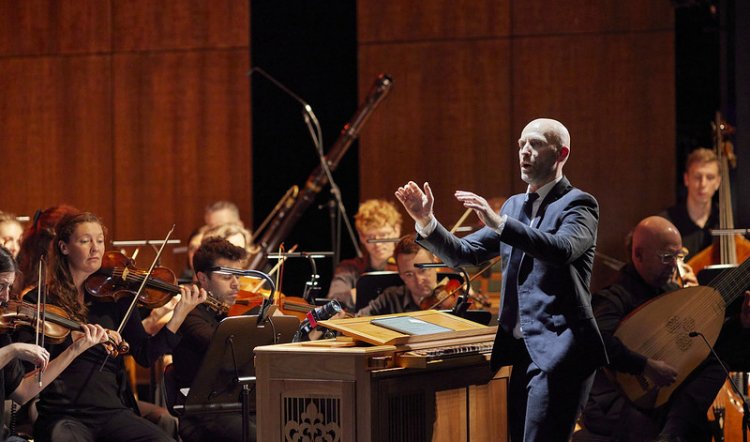
THEODORA IN CONCERT
THEODORA IN CONCERT, Pinchgut and Opera Australia at the Joan Sutherland Opera Theatre, Sydney Opera House, 9-10 February 2024. Photography by Keith Saunders: above Erin Helyard and orchestra; below Samantha Clarke; below again: Michael Petruccelli, David Greco, Samantha Clarke, Christopher Lowrey
For its first appearance at the Opera House with Opera Australia, Pinchgut and its director Erin Helyard could not have shone brighter or sounded more fit for purpose. Theodora in Concert – “realised for the stage” by Lindy Hume – is a revelation of imagination and fine music and musicians.
Theodora was first seen at Covent Garden on 16 March 1750 and Handel’s personal favourite of his oratorios was not immediately a success. It was canceled after three performances. Theodora had been preceded by the Messiah (smash hit) and it was also just before Quarter Day (March 25) aka payday, so people might have been feeling a bit strapped for cash and grumpy.
As well, it was also mid-Lent and that season of bodily deprivation might have felt even worse in the face of a story about Christian martyrdom and thwarted love (librettist Thomas Morell). So, although the work is three hours long, not a lot happens that is not underlined by much repetition. It could also be that with the Industrial Revolution and the conquest of India happening along with Mad King George coming to the throne, things had to be repeated because people were hopelessly distracted.
In any event, one can’t help but pay attention to the gorgeous Theodora of Antioch (Sydney’s summer soprano star post-La Traviata Samantha Clarke). Theodora has become a Christian and also displeased Governor Valens (David Greco), by refusing to take part in a heathen ritual to celebrate Emperor Diocletian’s birthday.
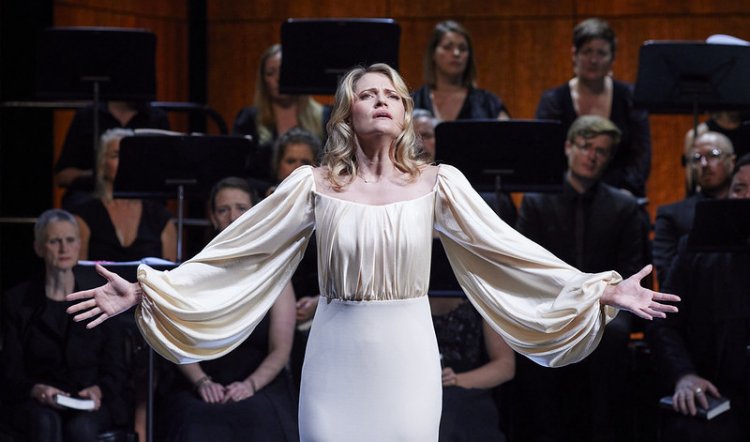
She is sentenced not only to prison but also to be used as they will by the soldiery. In her virtuous view this is far worse than death so she chooses martyrdom along with her secret Roman soldier-Christian convert lover Didymus (Christopher Lowrey).
Theodora’s friend and mezzo-soprano Irene (Helen Sherman) stays out of trouble while also remaining faithful to her friend. She sings some beautiful music, including a ravishing aria, and her partnering with Clarke is a total delight. The same must be said of counter-tenor Lowrey and Clarke – a sublime duet towards the end is something the audients who left during the interval sadly missed.
Tenor Michael Petruccelli as Didymus’s friend Septimius rounds out the soloists and his golden-toned voice is an electrifying hope for future tenor roles at Opera Australia. He and richly sonorous baritone Greco match Lowrey, Clarke, Sherman, and Petruccelli in vocal dexterity and seemingly effortless handling of the often fiendish Baroque ornamentations that abound in Handel’s score.
Laying a solid foundation for the singers, yet equally virtuosic, is the Orchestra of the Antipodes with Helyard conducting from the chamber organ. Lindy Hume’s staging has the orchestra occupying close to half of stage-left with the singers of Cantillation on bleachers two-thirds upstage right. The remainder of the space is clear but for four chairs against the wall, and this is where the “action” takes place.
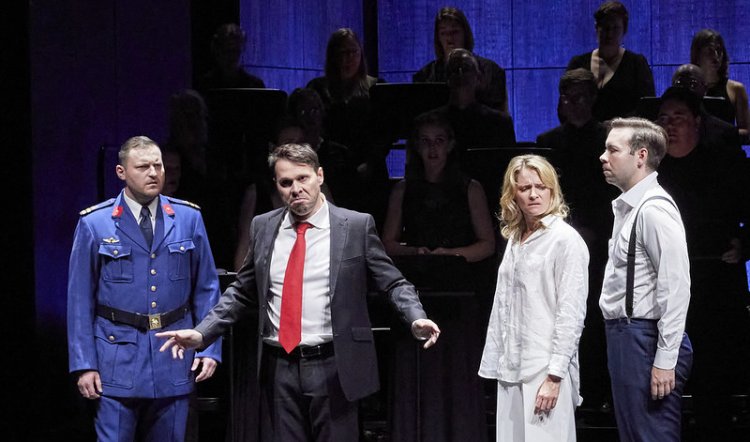
The set resembles the timbered walls of a small concert hall (!). It’s lit by Jason Morphett with angled spots highlighting individuals while washes of colour bathe the orchestra and its luxe wooden instruments in burnished red-gold. Much is made of specific downlighting and sharp black areas to silhouette Cantillation and delineate the soloists and their otherwise somewhat puzzling journeys. In short, the staging is effective and assists in transforming what might otherwise be a conventional static concert format.
There is nothing static or conventional about the orchestra, however. It begins with the uniquely resonant depths achieved by the melding of double bass, cellos, bassoon, and contrabassoon. When the violins and violas and theorbo flit and glide over the top along with the horns, the effect is magical and pretty much compensates for the lengthy and persistent restatement of virtually every vocal utterance.
Theodora is Handel at his most stately and reiterative and is not for everyone. However, the soloists are a collective rare treat. And if you’re a fan of the Baroque and the Orchestra of the Antipodes and Cantillation (20 singers lifting the roof off in awe-inspiring fashion) you’ll have been glad of the experience.
Comments
Leave a Comment
Enter your username and password to comment. Don't have a username? Register now.

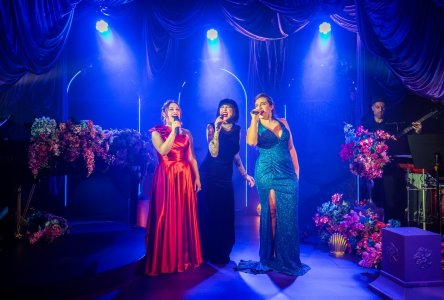
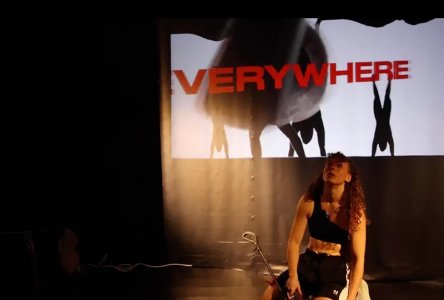
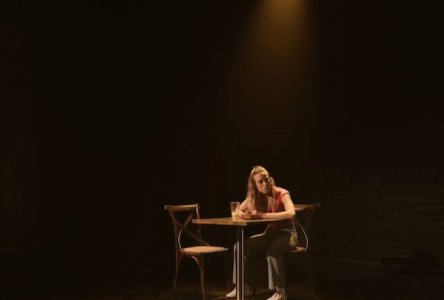
Be the first to leave a comment below